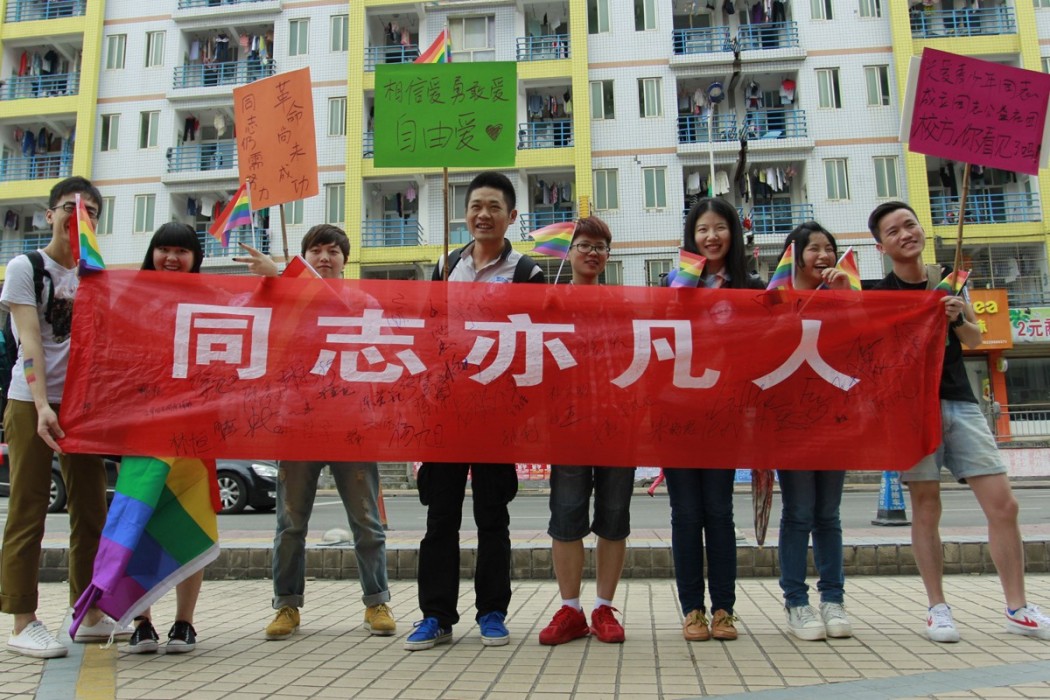Telling his wife he was gay was never going to be easy. But Yu Hu never thought it would see him committed to a mental hospital and fed a cocktail of drugs to “cure” him.
Yu’s wife readily agreed to a divorce, but his own family were nowhere near as tolerant.
They arranged for medical personnel to seize him, throw him into a van and strap him to a hospital bed.
For 19 days, he was given a mix of unidentified medications, with staff threatening to beat him if he refused to take them, all in the name of “curing” him of his orientation.
The 32-year-old was only released when his boyfriend and LGBT activists contacted police in Henan province.
Now Yu is suing his captors, the latest in a series of legal battles aimed at banning supposed “gay conversion therapies”.
“They must be brought to justice, being gay is not a crime, but what they did to me is,” Yu said. “This isn’t only happening to me, and this must stop.”
Yu still has nightmares about the episode last October. His demands are simple: an apology from the hospital and an acknowledgement homosexuality is not a disease to be cured.
The case is due to be heard on Wednesday.
‘We try to educate doctors’
Homosexuality is legal in China, but was only taken off the list of psychiatric disorders in 2001.
While Chinese attitudes to homosexuality have become more accepting in recent years, especially in larger cities, discrimination is still rife.
Government censors banned gay characters on television in March, with new guidelines decreeing: “No television drama shall show abnormal sexual relationships and behaviours, such as incest, same-sex relationships, sexual perversion, sexual assault, sexual abuse, sexual violence, and so on.”

Many Chinese are their parents’ only children as a result of the country’s often brutally enforced family planning policies, so parental expectations of marriage and grandchildren tend to exacerbate pressures on gay men and lesbians.
Some enter into “cooperation marriages” with a knowing partner in order to satisfy their family’s demands.
People who undergo conversion treatments — either voluntarily or after submitting to family pressure — spend about 20,000 yuan ($3,000) on average, according to the Beijing LGBT Center, although some see their costs spiral upwards as doctors encourage more sessions.
In Chongqing, fees are about 4,000 yuan for a course — almost as much as the city’s average monthly salary — which can include solitary confinement and even chemical castration.
But authorities are more interested in policing activists than clinics, said campaigner Sha Sheng, whose group has helped hundreds of gay men and lesbians after they found themselves in debt and trapped in Chongqing facilities.
“Even though a court has said this is wrong, it’s hard to fight against gay conversion therapy when the police are constantly shutting down our activities,” said Sha.
Other activists are trying to convert the medical providers.
“We try to educate doctors, introduce them to homosexual people and show them it’s not an affliction to be gay,” said Joelle Yao, an activist at the Beijing LGBT Center.
“A lot” of doctors leave the sessions with a “completely different view on homosexuality” she said, adding that Chinese prejudice was more often born of ignorance rather than religious conviction, making it easier to address.
But the task remains huge.
“We can’t reach everyone,” she said. “China is just too big.”
